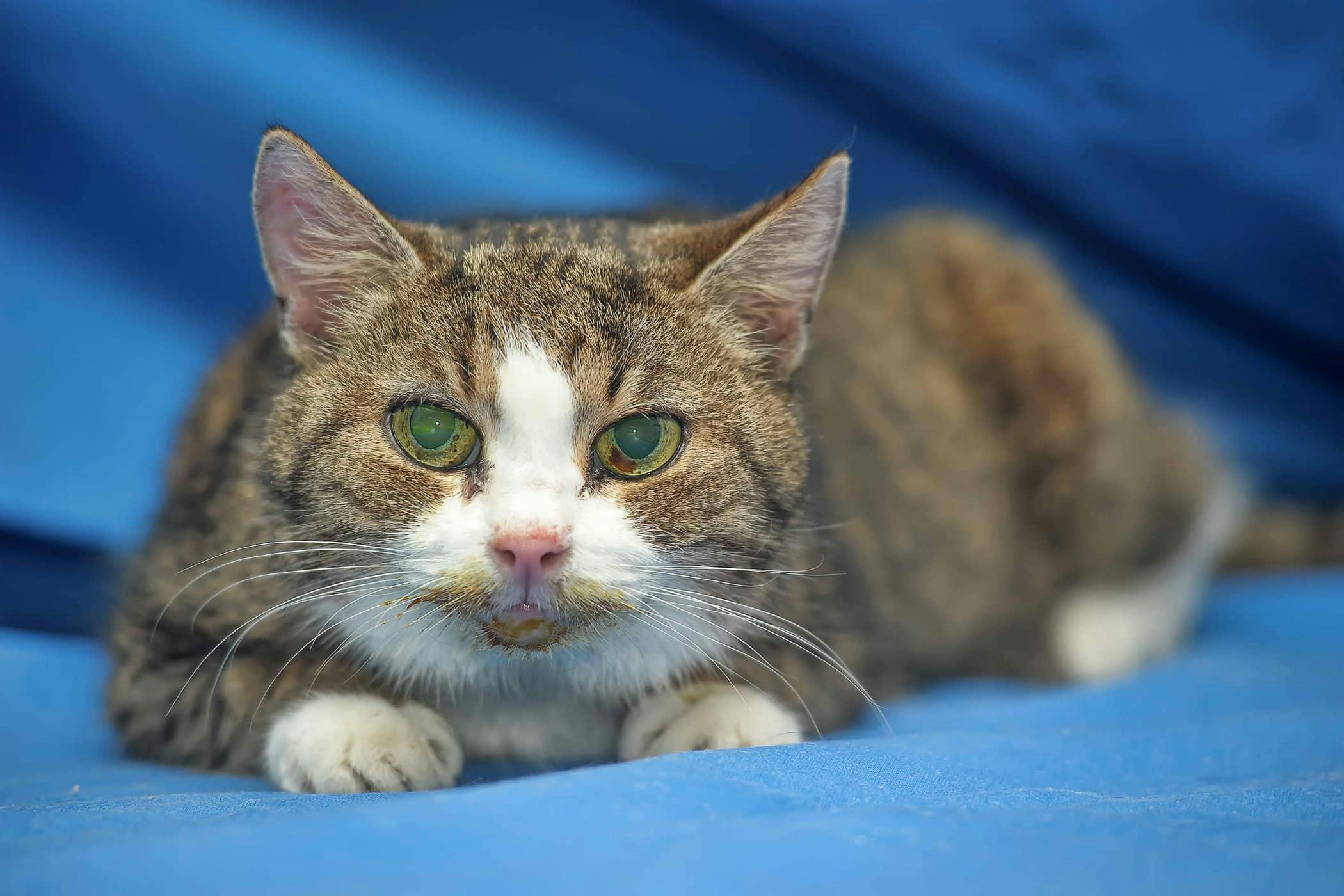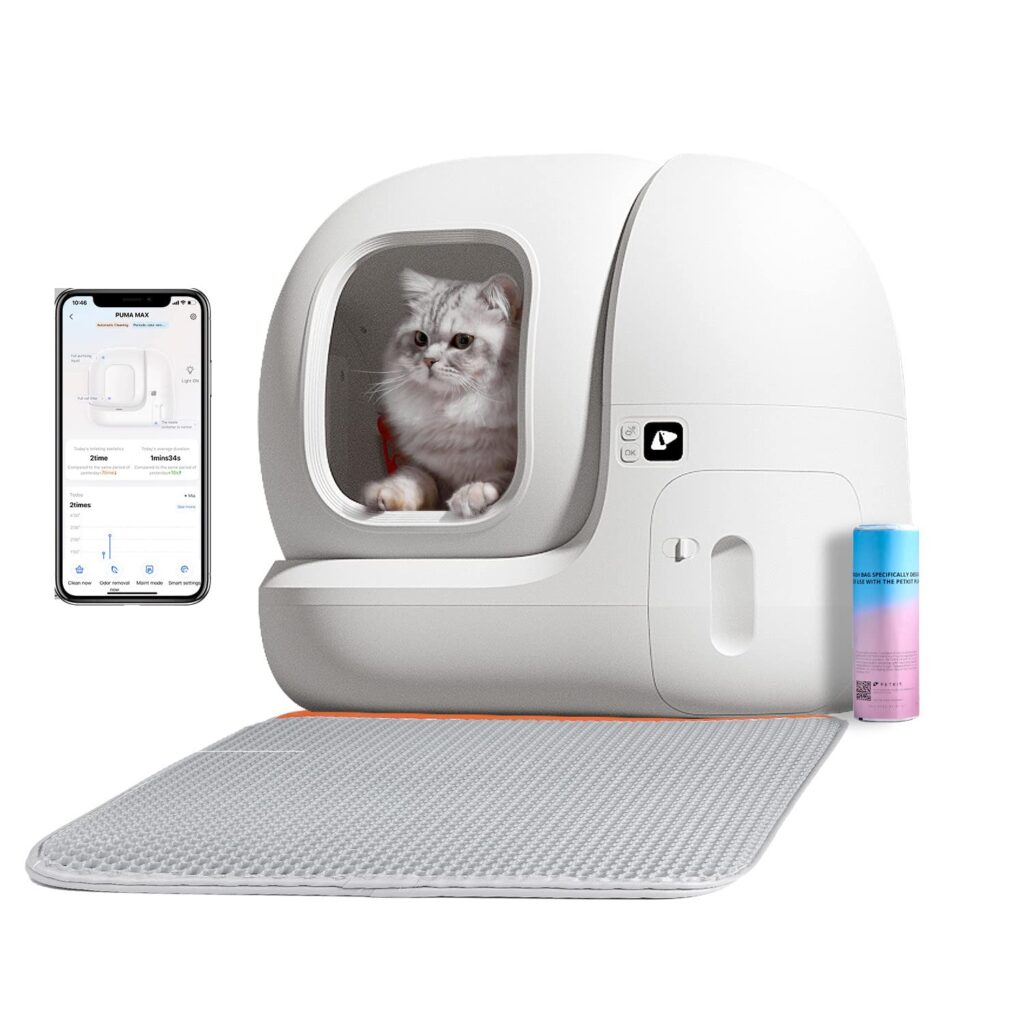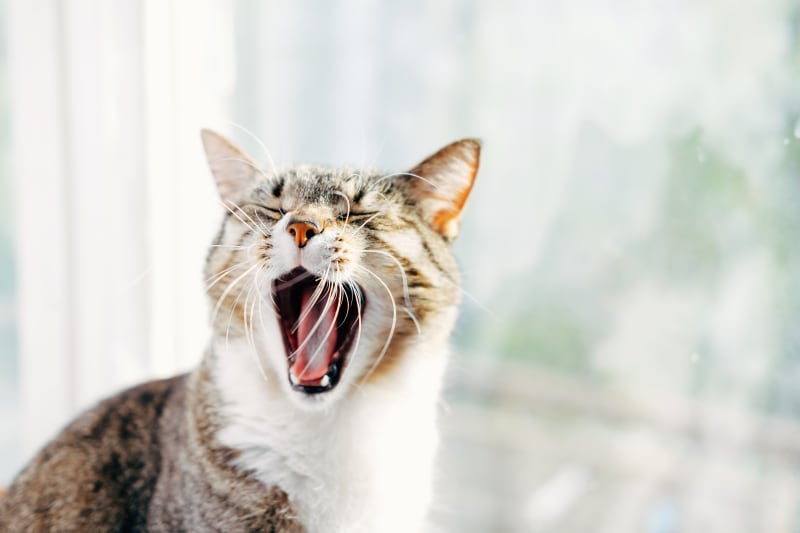Cat smacking lips and foaming can indicate dental problems or irritation, so it’s important to take prompt action.
Contents
- 1 Understanding Cat Lip Smacking And Foaming
- 2 Identifying The Signs Of Concern
- 3 Taking Action: Steps To Address Lip Smacking And Foaming
- 4 Providing Comfort And Relief For Your Cat
- 5 Seeking Professional Help: Veterinary Treatment Options
- 6 Preventing Recurrence: Long-term Care And Management
- 7 Frequently Asked Questions Of Cat Smacking Lips And Foaming – Should I Be Worried?
- 8 Conclusion
Understanding Cat Lip Smacking And Foaming
Cat lip smacking and foaming can be a cause for concern for cat owners, but it’s important to understand the underlying reasons. There are both medical and behavioral factors that can contribute to these behaviors.
What Causes Cat Lip Smacking And Foaming?
In some cases, cat lip smacking and foaming may be due to medical issues. One possible reason is dental problems, such as tooth decay or gum disease, which can cause discomfort and excessive salivation. Another medical cause could be oral ulcers or lesions that result in irritation.
On the other hand, there are also behavioral causes for lip smacking and foaming in cats. Stress or anxiety can manifest in these behaviors, especially during periods of change or disruption in the cat’s environment. Some cats may also exhibit lip smacking as a form of grooming behavior or as a response to a pleasant taste or scent.
If your cat is frequently smacking their lips and foaming, it’s best to consult with a veterinarian to rule out any underlying medical issues. A thorough examination and possible diagnostic tests can help determine the cause and appropriate treatment.

Credit: wagwalking.com
Identifying The Signs Of Concern
How often is lip smacking and foaming considered normal behavior?
Cat owners may notice their feline companions smacking their lips and foaming from time to time. In general, occasional lip smacking and foaming can be normal behavior, especially after eating or drinking. However, if these actions become frequent or are accompanied by other symptoms, it may be cause for concern.
- Excessive lip smacking and foaming: If your cat is constantly displaying this behavior, it could be a sign of an underlying problem.
- Vomiting or diarrhea: Lip smacking and foaming accompanied by vomiting or diarrhea could indicate gastrointestinal issues.
- Lethargy or changes in appetite: If your cat is not acting like their usual self and shows a decreased desire to eat, it could be a sign of illness.
- Difficulty breathing or drooling: These symptoms, along with lip smacking and foaming, may suggest respiratory or dental problems.
If you notice any of the aforementioned red flags or if you have concerns about your cat’s lip smacking and foaming behavior, it is recommended to consult a veterinarian. They can perform a thorough examination, provide a proper diagnosis, and offer appropriate treatment if necessary.
Taking Action: Steps To Address Lip Smacking And Foaming
Taking Action: Steps to Address Lip Smacking and Foaming
- Identify the potential cause of lip smacking and foaming in your cat, such as dental issues, toxic ingestion, or a neurological problem.
- If your cat’s condition seems severe or deteriorating rapidly, seek immediate veterinary assistance.
- Wipe away any excess foam from your cat’s mouth using a soft cloth or tissue.
- If your cat shows signs of distress or discomfort, try keeping them calm and comfortable by providing a quiet and familiar environment.
- Consult your veterinarian to determine if a change in diet may be necessary for your cat.
- Ensure your cat has access to fresh water at all times.
- Consider feeding your cat smaller, more frequent meals to avoid overeating or gulping down food.
- Switching to a higher-quality and easily digestible cat food may help minimize gastrointestinal issues.
- Observe your cat for any potential stress triggers and try to eliminate or minimize them.
- Provide environmental enrichment through interactive toys, scratching posts, and playtime to reduce stress and anxiety.
- Consider consulting with a professional animal behaviorist for further guidance on modifying your cat’s behavior.
- Ensure your cat has a designated space for alone time and uninterrupted sleep.
Providing Comfort And Relief For Your Cat
Creating a stress-free environment for your cat is crucial to their overall well-being. Cats can become stressed easily, leading to various health issues. Providing a calm and peaceful atmosphere can help reduce their anxiety. Proper grooming techniques can prevent irritation and discomfort. Regularly brushing their fur, trimming their nails, and cleaning their ears are essential for their hygiene. Additionally, providing them with a comfortable and clean litter box ensures they feel safe and secure.
Another aspect of caring for your cat’s health is enhancing dental care. Oral health issues can cause discomfort and even lead to more serious problems. Brushing their teeth regularly and providing dental treats can help prevent tartar buildup and gum disease. Additionally, incorporating dry food into their diet can aid in maintaining good dental hygiene.
Seeking Professional Help: Veterinary Treatment Options
Cat Smacking Lips And Foaming – Should I Be Worried?
Medical Examinations And Tests
If your cat is frequently smacking its lips and foaming, it is important to seek veterinary treatment to determine the underlying cause. A veterinarian will conduct a thorough examination of your cat to assess its overall health and identify any potential issues.
In addition to a physical examination, the veterinarian may recommend various tests, such as bloodwork, urine analysis, or X-rays. These tests can help identify any underlying medical conditions or abnormalities that may be causing the lip-smacking and foaming.
Medications Commonly Prescribed For Lip Smacking And Foaming
Depending on the diagnosis, your veterinarian may prescribe medications to help alleviate your cat’s symptoms. These may include anti-inflammatory drugs, antibiotics, antiviral medications, or other specific treatments targeting the underlying cause.
Alternative Therapies And Treatments
In addition to traditional medications, some veterinarians may recommend alternative therapies or treatments for lip smacking and foaming in cats. These may include natural remedies, dietary changes, acupuncture, or behavioral modifications. It is important to discuss these options with your veterinarian to determine the best course of action for your cat.
Preventing Recurrence: Long-term Care And Management
If you notice your cat smacking lips and foaming, it can be a cause for concern. While occasional lip smacking and foaming can be normal, especially after eating something unpleasant, frequent or persistent episodes may indicate an underlying health issue.
To prevent recurrence and ensure long-term care for your cat, there are several measures you can take. First and foremost, maintaining a balanced diet and proper nutrition is essential. Providing your cat with high-quality food that meets their specific dietary needs can help keep their oral health in check.
Regular veterinary check-ups and dental cleanings are crucial for monitoring your cat's overall health and addressing any oral issues promptly. Your vet can assess your cat's teeth and gums, clean plaque or tartar buildup, and recommend appropriate treatment if necessary.
Promoting mental and physical stimulation is also vital for your cat's well-being. Engage your cat in play sessions, provide interactive toys, and create a stimulating environment to keep them physically and mentally active.
By following these preventive measures, you can help ensure your cat's oral health and overall well-being over the long term.
Frequently Asked Questions Of Cat Smacking Lips And Foaming – Should I Be Worried?
Why Is My Cat Foaming At The Mouth And Smacking Lips?
A cat foaming at the mouth and smacking lips may be experiencing excessive salivation, which can be caused by various factors such as dental problems, ingestion of toxic substances, or anxiety. Consulting a veterinarian is recommended for proper diagnosis and treatment.
Why Is My Cat Foaming At The Mouth Before Dying?
Foaming at the mouth in cats before dying can be a sign of excess saliva due to pain, fear, or respiratory distress. It could also indicate ingestion of a toxic substance. Immediate veterinary attention is required to determine the exact cause and provide appropriate treatment for the cat’s well-being.
Why Is My Cat Smacking His Lips And Not Eating?
Your cat may be smacking their lips and refusing to eat due to dental problems, an upset stomach, or an underlying health issue. It’s best to consult with a veterinarian to determine the cause and provide the appropriate treatment for your cat’s well-being.
Why Is My Cat Smacking Its Lips And Foaming?
Smacking lips and foaming can be signs of dental issues, nausea, or ingestion of toxic substances. It’s best to consult a veterinarian for a proper diagnosis.
Conclusion
If you notice your cat smacking their lips and foaming, it can be concerning. However, understanding the underlying causes can help ease your worries. From dental issues to stress or even the ingestion of toxic substances, it’s crucial to monitor your cat’s behavior and seek veterinary advice if necessary.
Maintaining your cat’s oral hygiene, reducing stress, and keeping potentially harmful substances out of reach can help prevent such symptoms, ensuring your furry friend stays healthy and happy.

Katie Lindsey is a passionate cat lover and founder of Cats Solution, a comprehensive resource for all things feline. With a lifelong love for cats and extensive knowledge in their care and behavior, she provides expert advice and solutions to cat owners. Through her website, Katie fosters a supportive community where cat enthusiasts can find guidance and heartwarming stories. A dedicated advocate for animal welfare, Katie also promotes responsible pet ownership and adoption. Join her on this purr-fect journey celebrating the joy of feline companionship.



